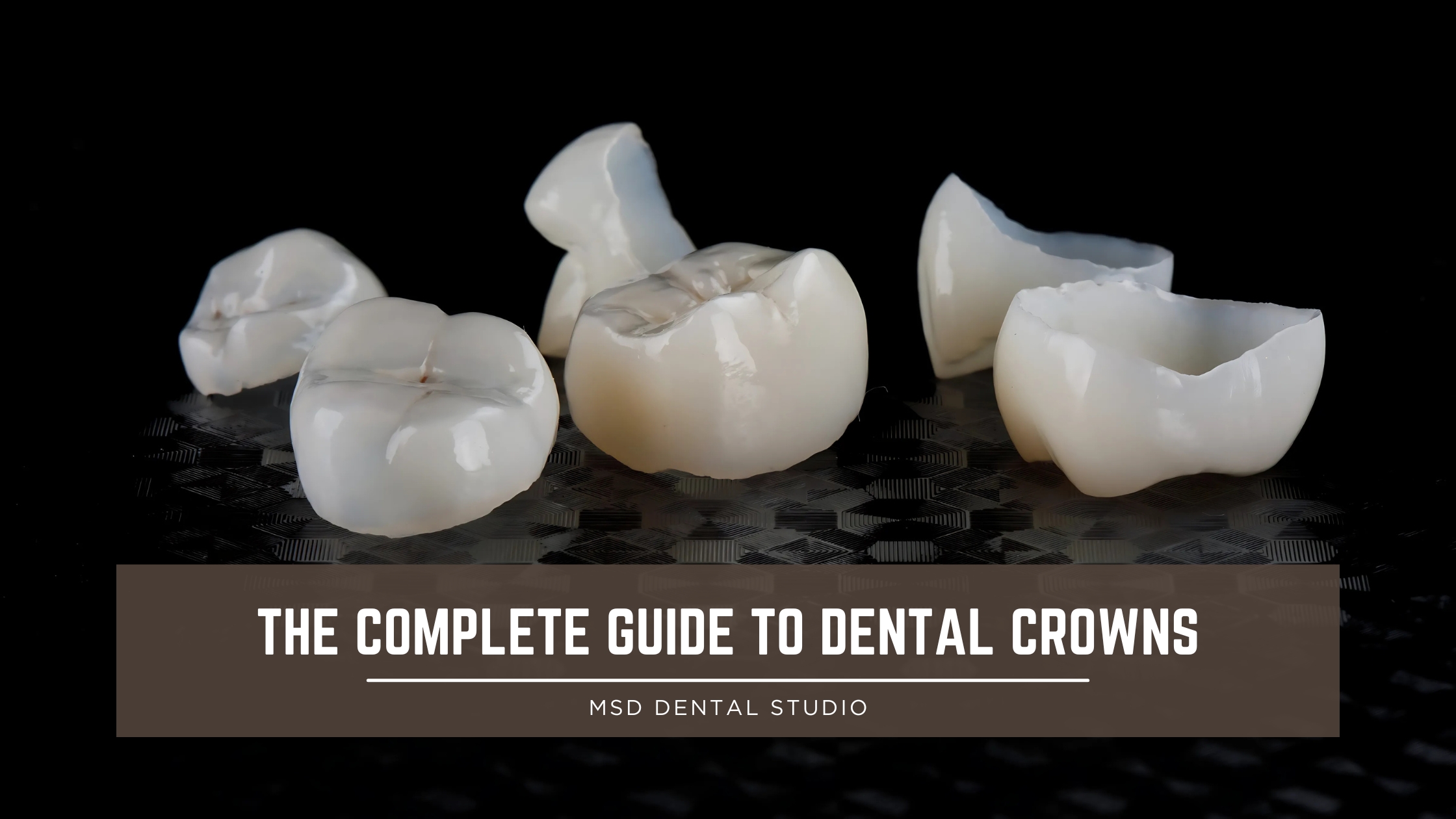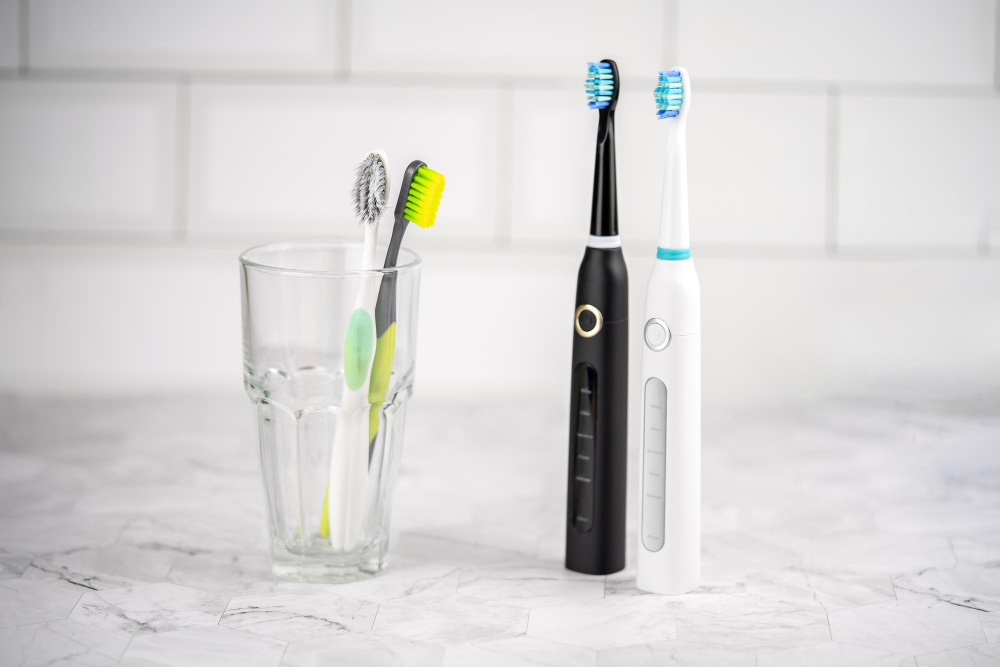🦷 Table of Contents
- 🔍 What Is a Dental Crown and Why Is It Used?
- 👑 Types of Dental Crowns: Which Is Best for You?
- 🔹 Steps In the Dental Crown Procedure: What To Expect
- ⚠️ Dental Crown Complications That You Should Not Ignore
- 📍 Why It’s Better to Choose a Dentist Near You
- 💡 What are the Benefits of Dental Crowns?
- ⏰ Don’t Wait Until It’s Too Late
If a tooth breaks down, there could be pain, infection, or even tooth loss if it is left untreated. It can be cumbersome to figure out what to do when you do not even know what your options are.
If you are trying to figure out how to make an informed decision about dental crowns in Coral Springs, you have found the right blog to get exactly what you need to know before it is too late.
What Is a Dental Crown and Why Is It Used?
A dental crown is a custom-made cap that covers the top of a tooth that has cracked, has a weak structure, or has been restored heavily. Crowns help restore a tooth’s shape, strength, and function while simultaneously improving its appearance.
Dentists will use crowns to:
- Protect a tooth that is decayed or cracked.
- Support a large filling when little structure of the tooth remains.
- Strengthen a tooth after it has undergone a root canal.
- Replace a missing tooth, such as with a dental implant.
- Improve the appearance of a poorly shaped tooth or a tooth that is stained.
Crowns can also be used for some non-cosmetic reasons if they prevent larger dental problems from happening in the future.
Types of Dental Crowns: Which Is Best for You?
Different materials are used to make crowns, and the right type depends on where the crown is placed and your personal needs.
Here’s a breakdown:
| Type | Material | Best For | Advantages |
|---|---|---|---|
| Porcelain or Ceramic | Tooth-colored ceramic | Front teeth | Natural appearance blends with other teeth |
| Porcelain-Fused-to-Metal | Porcelain & metal base | Back teeth | Strong and durable, but may show dark lines |
| Zirconia | Strong ceramic | Front or back teeth | Extremely durable and looks natural |
A dentist will recommend a crown type based on your bite, tooth location, and cosmetic preference.
Steps In the Dental Crown Procedure: What To Expect
The dental crown procedure typically takes a couple of visits with multiple steps. Here are the key steps in the dental crown procedure:
Examination and Preparation
The dentist examines the tooth with X-ray(s). If there’s decay or if the pulp is at risk of infection, the tooth may require a root canal. The dentist will need to fill the tooth to ensure the crown fits appropriately.
Impression and Temporary Crown
An impression or digital scan of your tooth will be taken to create the crown. A temporary crown will also be placed to protect the area while the permanent crown is made.
Fitting the Permanent Crown
A dentist in Coral Springs will schedule a follow-up appointment for your second visit to check the fit and the color of the crown, finalize the fitting, and cement it securely into place.
Some dental offices provide same-day crowns using technology, thereby reducing the dental crown process to one appointment!
Dental Crown Complications That You Should Not Ignore
Although crowns are safe and effective, some dental crown complications can occur:
- Tooth Sensitivity: Can happen after placement, especially due to hot or cold items.
- Loose Crown: If the cement weakens or there’s decay underneath.
- Chipping or Cracks: More likely with porcelain crowns under heavy pressure.
- Discomfort or Misalignment: Can affect your bite or cause jaw pain.
- Dark Lines Near the Gums: Common with porcelain-fused-to-metal crowns.
Most issues are avoidable or fixable if detected early. Always follow your dentist’s care instructions and return for regular checkups.
Why It’s Better to Choose a Dentist Near You
Choosing a dentist near you may seem like a small decision, but it makes a big difference:
- Faster Appointments: You can get urgent fixes or follow-ups quickly.
- Easier Communication: Local offices are more accessible for questions or concerns.
- Ongoing Care: Maintaining your crown and overall dental health is easier when you have a trusted provider nearby.
- Emergency Situations: A local dentist can help quickly if your crown cracks, comes loose, or causes pain.
Proximity can mean better support, shorter waits, and more confidence in your long-term care.
What are the Benefits of Dental Crowns?
Dental crowns can be beneficial in the long run and offer several advantages. When placed properly and cared for, they can:
- Protect the natural tooth from further damage or loss
- Restore normal chewing and speaking function
- Improve appearance and confidence
- Prevent infections from entering weakened teeth
- Last 10–15 years or more with good oral hygiene
They’re not just for now; they’re for your future.
Don’t Wait Until It’s Too Late
A weak or broken tooth doesn’t just hurt; it puts your entire dental health at risk. The longer you delay treatment, the more likely you are to face infections, root canals, or even tooth loss. Crowns aren’t optional when a tooth is failing; they’re essential.
Small Delays Lead to Bigger Problems.
Waiting too long to fix a damaged tooth can result in irreversible damage, higher costs, and more pain.
Acting now can save you from serious procedures later and protect your natural smile. When it comes to restoring your smile, precision and care matter.
At MSD Dental Studio, we specialize in customized dental crown solutions that last. Schedule a quick call and take the first step toward a stronger, healthier smile.







